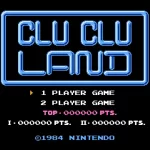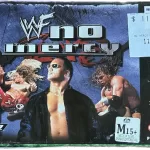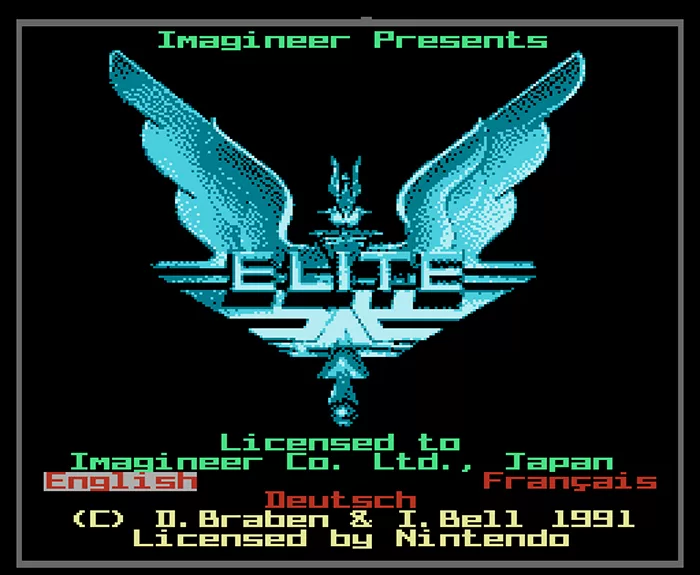
Elite is an extraordinary game for its time, and it’s even more extraordinary that it somehow ended up on the NES.
In Retro Game Of The Week I pull a game from my collection and write about why it’s important or interesting. Or in some cases, badly dated and rubbish.
I usually relate how I have my personal copy of a given game down in the section where I talk about how you can buy it now, but I’m going to break with that tradition this week. Hey, it’s my site and my features, I can do what I like, you’re not my real dad!
(With apologies to my actual father, who wouldn’t care one way or another anyway)
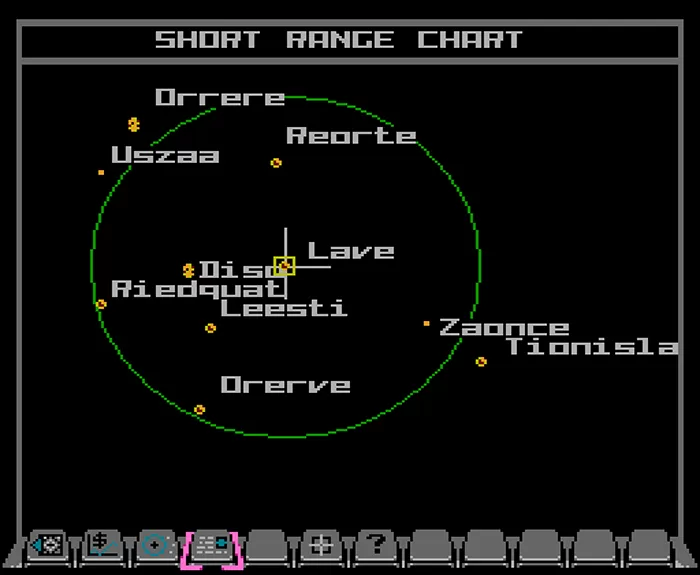
Space is, as Douglas Adams observed, big. Really big. You just won’t believe how vastly hugely mind-bogglingly big it is… (etc)
Elite as a game was one of those landmark titles it was impossible not to be aware of, for sure. I certainly knew what it was — its presence in 1980s gaming magazines was immense — and while I’d played the sequel, the point at which I picked up Elite for the NES was well past its heyday. It was 1999 to be precise, and I’d played a fair amount of the sequel on the Amiga 500, but never actually the original.
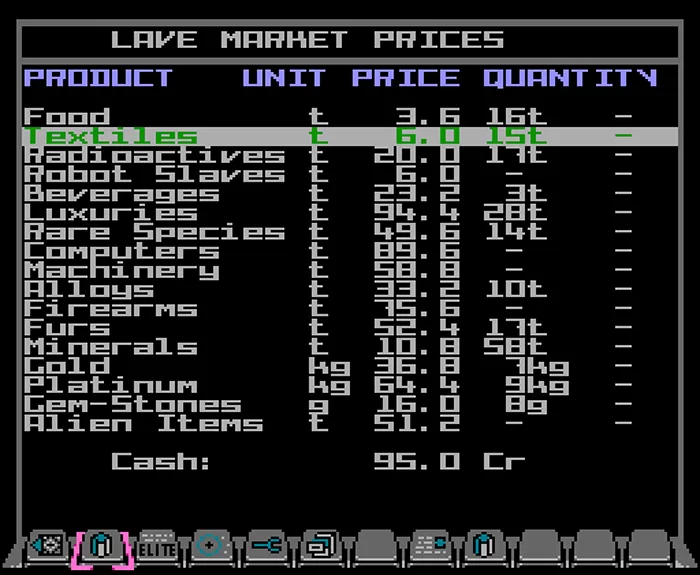
Elite is a game about space… but mostly about supply chains. I feel Adam Turner would approve.
Then in the period just after I picked up a cheap NES (which I wrote about when playing through the abysmal Bart vs The World), I went into a bit of a NES cartridge buying frenzy. NES games were cheap, and while it never had the same cachet as the Master System did on these shores, they weren’t hard to find.
Then one day, in the Cash Converters in Chatswood, I spotted Elite for the NES on a shelf, priced five bucks. Really? They made Elite for the NES? This was news to me, and as it was boxed (and indeed complete) a fiver felt like a punt worth taking, bearing in mind that a lot of NES games are, well… rubbish.
For everyone who wants to complain about Atari killing the market with crappy games, I’d point towards the tsunami of abhorrent gaming on the NES… but I digress.
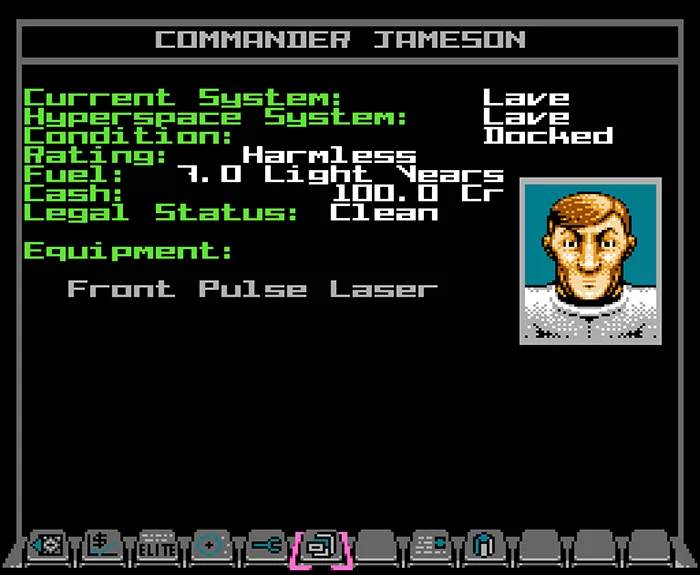
Subtle nod to Hitchhiker’s here. OK, it’s not at all subtle…
Elite, if you’re not aware, is an open space trading sim with light space piracy and combat themes all rolled into a universe of 2,048 planets across 8 galaxies. It’s a big game, and I’m going to posit that it’s arguably the biggest game on the NES, maybe not in cartridge memory terms, but certainly in scope of its worlds. Name me a NES game with 2049 worlds. I’ll wait.
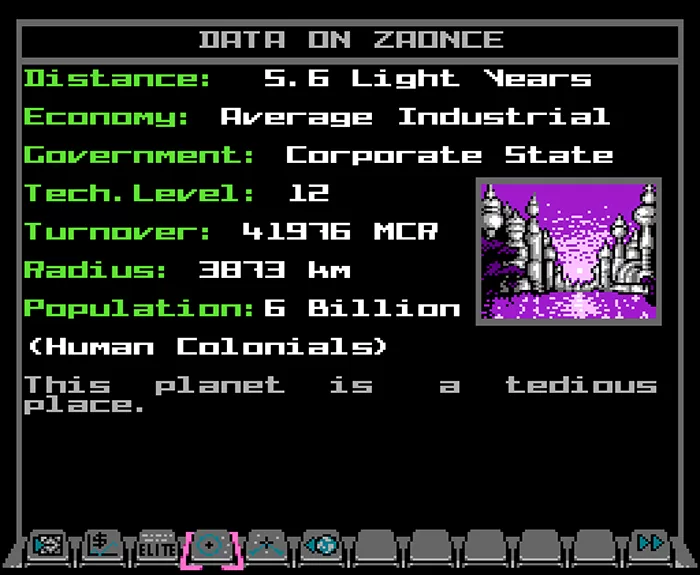
The Zaonce tourist board really needs to work on its marketing, though.
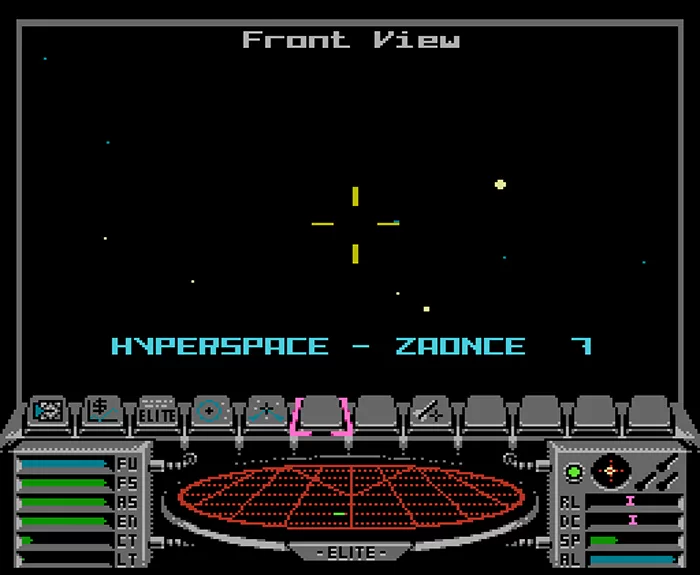
Let’s head to Zaonce anyway.
Maybe they have some nice coffee places, or Thargoid arts and crafts we can buy.
Ian Bell and David Braben’s achievement back in 1984 on the humble BBC Micro was immense, and it’s fascinating how it got transferred over to the NES. Bear in mind this was a game built around keyboards, something that the NES doesn’t really have.
No, this doesn’t count, and neither does the NES Basic version.
Elite for the NES does a decent enough job of transferring across everything you need to do in the game to the D-Pad, select, start and A and B buttons, though there is quite the learning curve.
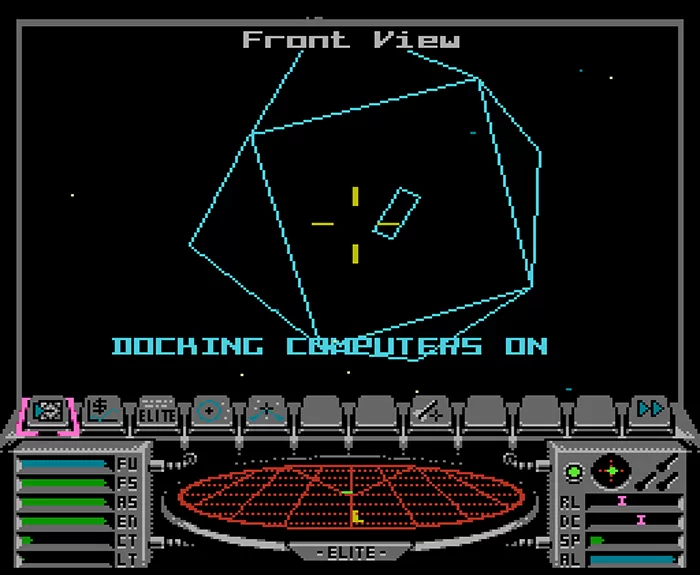
One of my favourite quotes about Elite? From co-developer Ian Bell: “My greatest published achievements technically would have to be fitting BBC Cassette “Elite” into 32K of RAM including the screen, and later the Nintendo Entertainment System conversion of “Elite” that used a character mapped display and a single NES controller. The NES is my favourite published conversion and was not thought technically feasible until we’d done it.”
I’m glad my copy came with the manual, because it does lay out what you need to do and how you go about doing it rather well.
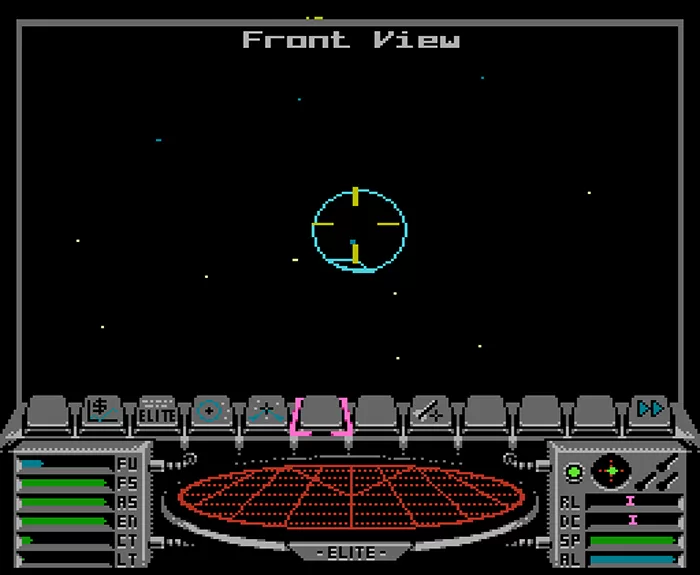
My favourite trivia about the other half of the Elite development team, David Braben?
He’s a co-founder of the Raspberry Pi Foundation. Yes. THAT Raspberry Pi.
Without it, most players would likely hit start and be launched into the game’s combat simulator, rather than hitting select to launch the game proper. Odd choice that one, especially as combat is slightly constrained in this version. Because the D-Pad is your control, you can’t really do full 360 pitch and yaw style controlling, meaning you have to tilt sideways then go up and down for the same effect. Again, that’s a learning curve kind of deal.
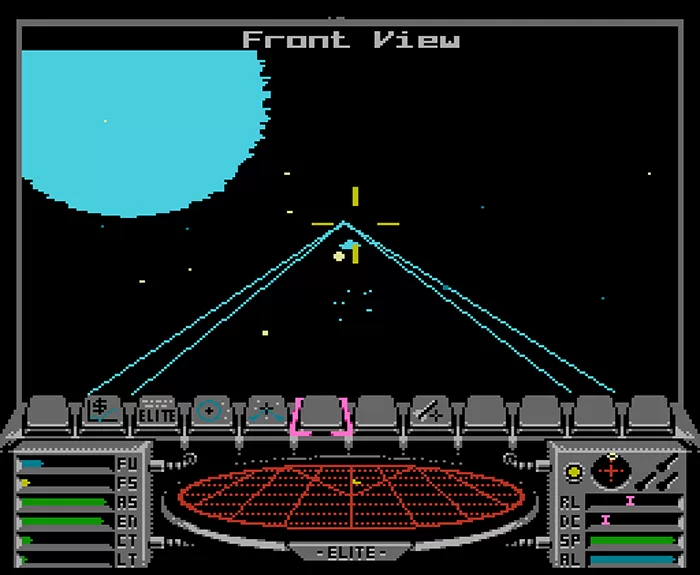
Combat in the NES version is tricky. Not impossible, but then you don’t get to Elite status by taking the easy path anyway.
One of the questions I always try to answer in these articles is whether a given game is still worth playing now.
Clearly, if you’ve got rosy nostalgic memories of the BBC version… or the Spectrum version… or the Amstrad version (which I also have a copy of, though no Amstrad to play it on)… or any of the other conversions on 8 and 16 bit computers — then there’s definitely fun to be had here.
But what if you’re fresh to Elite but keen on space trading simulators?
I can’t and won’t deny that while this is a gaming niche, it’s one that’s evolved well beyond what Elite could manage nearly (gulp) 40 years ago. Time is a cruel mistress, and all that.
However, I’ve long argued that there’s also value in looking at where games came from, both for historical appreciation and to draw in ideas that are sometimes left behind as newer gaming concepts come into vogue.
Elite was an amazing game for its time, and while newer players will probably find it a bit slow and might not be quite as wowed by the vector style visuals as we were back in the day, if you’re a player of any of the newer space trading sims, it’s well worth giving Elite a spin.
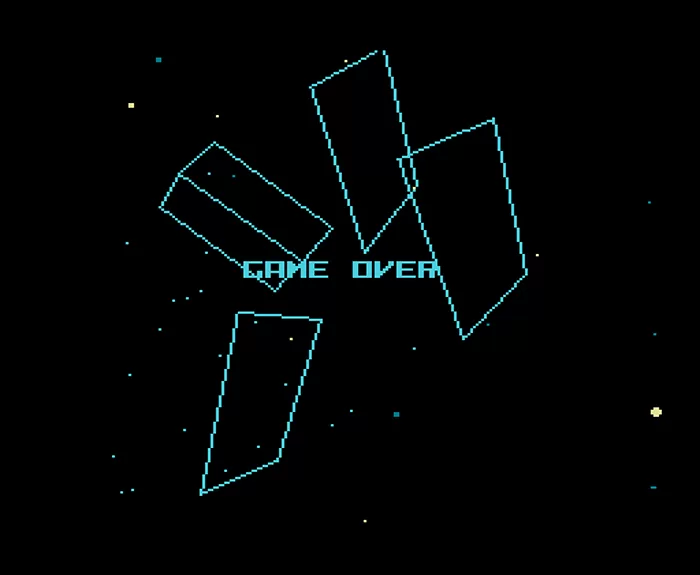
Just don’t expect to survive all that long, because Elite teaches you very fast that space is big, nasty and mostly empty.
Indeed, while the visuals have jumped light years ahead of what Elite could manage, I don’t think I’ve hit a game that puts forward the true emptiness and isolation of space quite as well as it does.
It’s also a really well documented game; if you’re keen on a seriously deep dive into everything the original code has, head here.
How to play Elite (NES) now
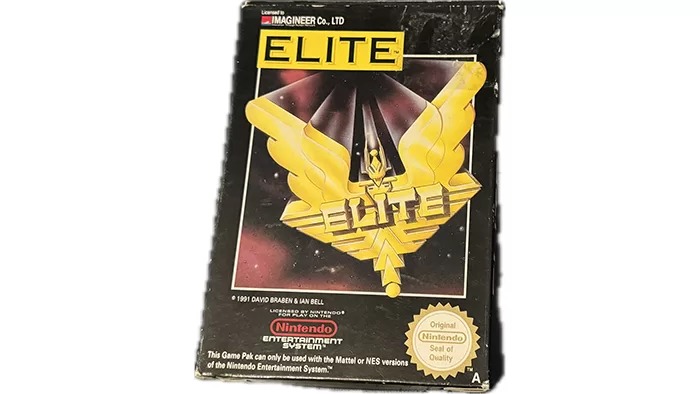
My copy’s holding up pretty well. It would be… tricky… to replace it.
If you just wanted to play Elite, you’ve got lots of options, up to an including Elite: Dangerous. Heck, the original creators are pretty happy for you to play it for free via web emulation as well. Fill your space boots.
What about the NES version, though? It’s one of those oddities in NES gaming, because it’s a title that wasn’t developed for the Japanese market, and it never got a release in the NTSC US market, despite the NES being the dominant format there. If you want an actual copy of the NES version, you’re purely in PAL-land… pal.
All of that means that it’s a title that is genuinely kind of rare… and in retro spaces, genuinely rare doesn’t often mean inexpensive.
My own copy was a bit of a bargain; searching around eBay I can only find a few recent actual sales, and only one copy available right now. It’s complete… and they’re asking serious money for it.
I do think that the NES version is a fascinating technical achievement and a true part of gaming history… but I can’t exactly say that’s a great value gaming buy.







